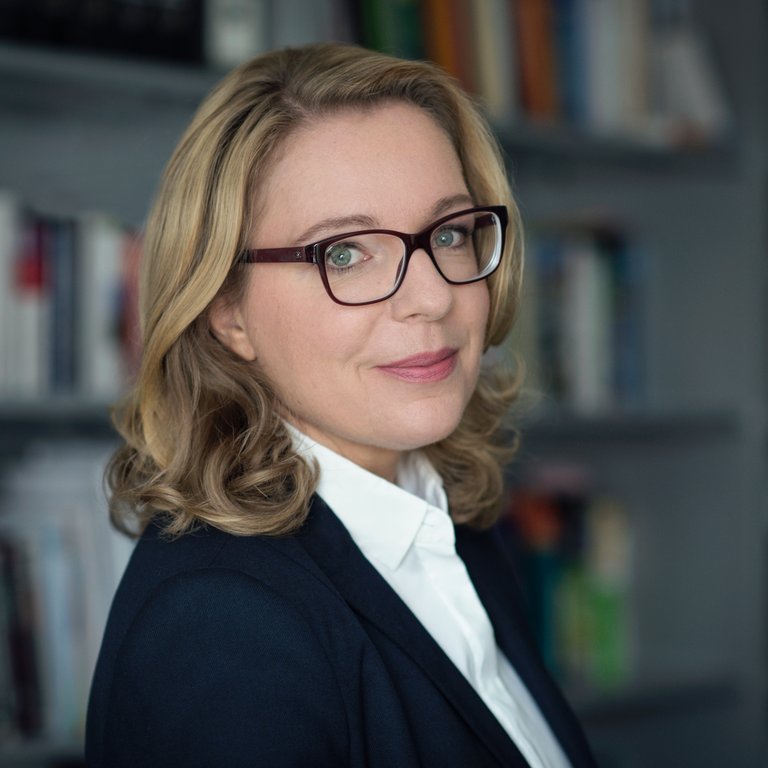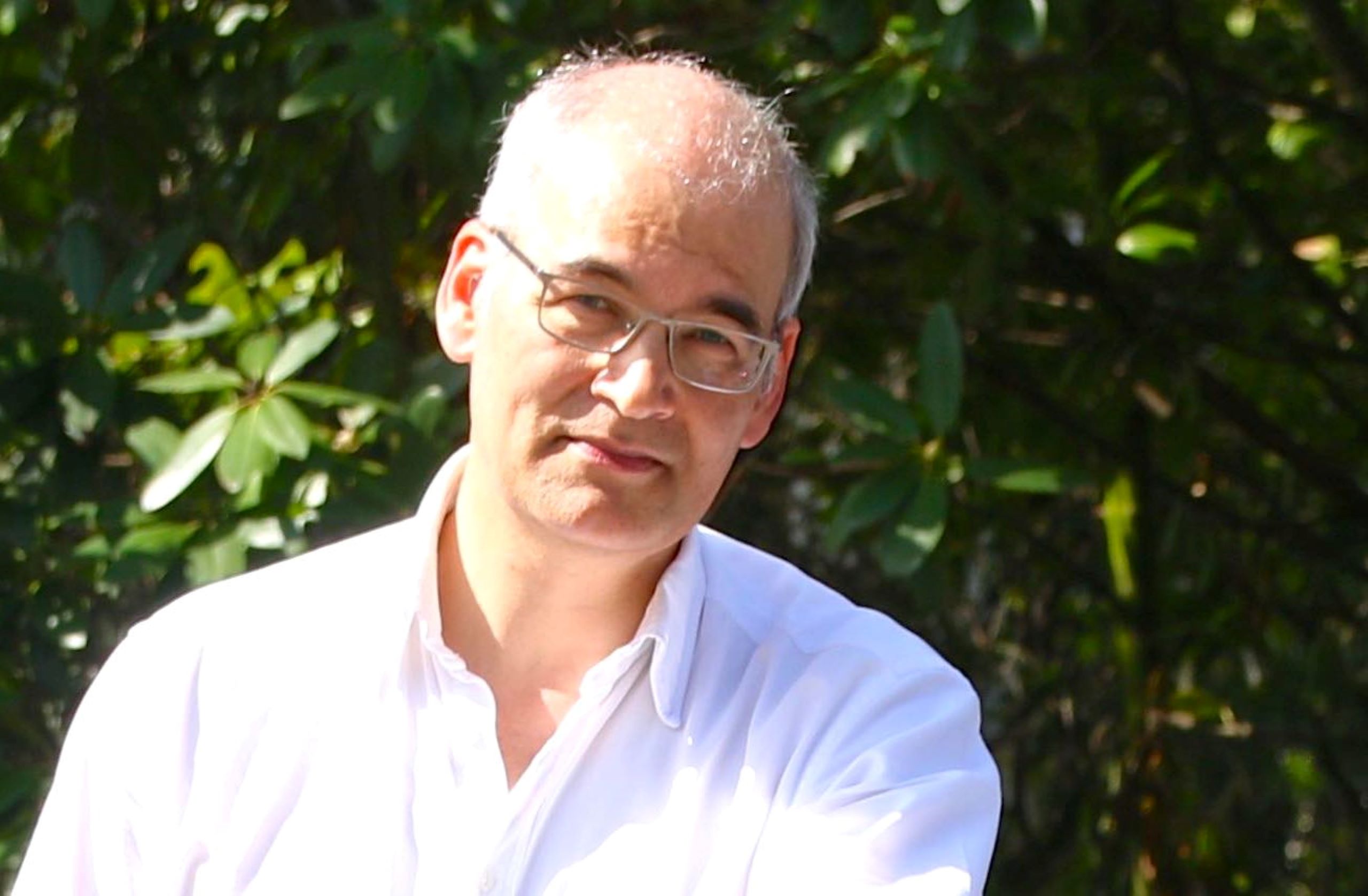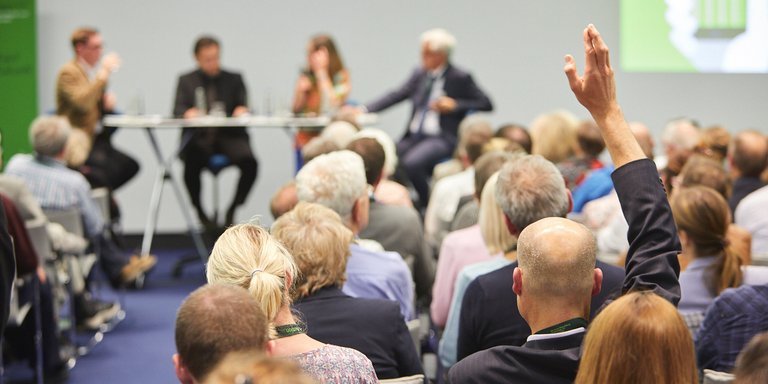The energy transition is one of the most important pillars for climate protection. According to current assessments by the new government, Germany has done far too little in recent years. Above all, we need to catch up in the areas of transport and heating. In addition, the war in Ukraine has put us in a difficult position in terms of energy policy. Energy security is under threat. Therefore, an Energy Transition 2.0 is more urgent than ever in order to break our dependence on fossil fuels and at the same time slow down climate change. The experts at the 3rd Dialogue Forum in the series "Smart Solutions for Climate Protection" discussed prerequisites and possibilities for giving new impetus to a sustainable energy economy.
Conflict over fossil energies
"Now we are paying the price for the protracted energy transition," complained Dr. Claudia Kemfert, energy economist at the German Institute for Economic Research (DIW) and professor at Leuphana University Lüneburg. "We are in a situation that is more serious than ever before in my lifetime," she made clear. "On the surface, the Russian attack on Ukraine may be about a regional conflict, but in terms of world politics we are in the middle of a war over fossil energies. " Therefore, she said, we have to pull out all the stops to get away from fossil fuels in double-quick time. "Full supply from renewables in the electricity sector can be achieved by 2030. A complete supply of all energy sectors by 2035 is feasible as well as urgently needed," says the expert. Her recommendations to politicians: speed up all renewable energy projects, simplify approval procedures, abolish distance rules for wind turbines and train enough skilled workers for the energy transition. She also sees a lot of potential in energy saving. "These are the low-hanging fruits to overcome the crisis. "
On the surface, the Russian attack on Ukraine may be about a regional conflict, but in terms of world politics we are in the middle of a war over fossil energies.
Prof. Dr. Claudia Kemfert
Head of the Energy, Transport and Environment Department, German Institute for Economic Research (DIW), Berlin
Dr. Ingrid Nestle, member of the Bundestag and spokesperson for climate protection and energy for Bündnis 90/Die Grünen, also expressed her concern about the current situation: "In terms of energy policy, we are in a more serious situation than is perceived by broad sections of the population." The valuable treasure of energy security of the past decades has been lost, she said, and we are facing difficult winters. As with the Corona pandemic, the whole of society is called upon to act in order to find a way out of this threatening situation. More renewable energies and efficiency as well as higher savings are the cheapest and most effective long-term answers to the current energy and climate crisis.
Strategy of holding on and letting go
For Andreas Kuhlmann, Chief Executive Officer at the German Energy Agency dena, the fundamental transformation of our energy systems consists of many small steps. He, too, believes that this can only be achieved by society as a whole and advocated a strategy of holding on and letting go: "We need to stick to the medium-term climate goals, but be flexible enough to adapt our plans and ideas to the new realities." Because the requirements for the energy transition and climate protection are changing, research and innovation must be driven forward, he said. Because the idea that we already have all the technologies we need for the transformation is wrong.
We need to stick to the medium-term climate goals, but be flexible enough to adapt our plans and ideas to the new realities.
Andreas Kuhlmann
Chief executive, German Energy Agency (dena), Berlin
An additional push would be needed, for example, in the field of hydrogen: "We need it quickly, reliably and in large quantities to continue the success story of renewable energies and to achieve climate neutrality," explained Dr. Sopna Sury, who is responsible for hydrogen management at RWE Generation SE. Its particular advantage is that it can be used as a storage medium and has a wide range of applications in industry or transport. Sury praised the fact that the German government's coalition agreement doubled the target for hydrogen electrolysis capacity to 10 gigawatts by 2030. But even that would still fall short. By comparison, the coalition agreement targets a total capacity of 200 gigawatts for photovoltaics by 2030. At the same time, the RWE manager referred to the tough approval procedures and the sluggish expansion of the hydrogen infrastructure. "The faster the hydrogen market ramps up, the faster green hydrogen produced with electricity from renewable energy sources will become competitive," she pointed out. But unfortunately, she said, the EU is tripping itself up in some areas such as legislation, planning and authorisation procedures. "We need pragmatic solutions now," she said.
Take SDG goals into account
"The triad of renewable energies, energy saving and hydrogen is the right way to go," Kuhlmann agreed. Since green electricity is the basis of everything, you need it in large quantities, otherwise you won't get far with green hydrogen. The dena CEO also called for the restructuring of the economy to take into account not only climate change, but also the United Nations Sustainable Development Goals (SDGs). "That's about health, social justice and peace. The question is, how do we get there?"
As a society, we have it in our hands how bad the crisis will be, whereby one would even have to make fewer sacrifices compared to Corona.
Dr. Ingrid Nestle
Member of the German Parliament, Head of the Working Group and Spokesperson for Climate Protection and Energy, Bündnis 90/Die Grünen, Berlin
One area that is often forgotten in the energy transition is agriculture. "Yet the fertiliser industry is one of the largest consumers of gas," the Member of the Bundestag Nestle pointed out. We also need to become more sustainable when it comes to food," Kemfert demanded, "be it alternative farming methods or simply a reduction in meat consumption. A lot would be gained without having to do without much. The DIW expert also pleaded for people to be made aware of the seriousness of the situation and the causal relationships: "Energy prices are not rising because of the energy transition, but because we have manoeuvred ourselves into a dependency on coal, gas and oil," she clarified. Her recommendation to politicians: "We could be much faster, especially in saving energy." In addition, as in the pandemic, we need to define early indicators that can be used to check whether we are moving along the right path in terms of energy policy.
Are politics in Germany currently on the right track? "The goals are highly ambitious, and of course it is difficult to reconcile the different ideas," Kuhlmann clarified. "It depends on all of us," added Nestle, because politics is always guided by the currents in the country. She referred to the so-called Easter Package 2022, the first revision of the Renewable Energy Sources Act (EEG), which is supposed to bring many relief measures for photovoltaics.
We need a strategic roadmap and detailed transition paths on how to achieve the goals of climate neutrality and security of supply with green energies. If we pay attention to both, I am very confident that we will succeed.
Dr. Sopna Sury
Chief Operating Officer Hydrogen, RWE Generation SE, Essen
"More packages will follow to respond to the new urgency due to the Ukraine conflict," Nestle held out the prospect, adding: "As a society, we have it in our hands how bad the crisis will be, whereby one would even have to make fewer sacrifices compared to Corona." "The time when we only formulated goals is over, now it's time to implement them," Kuhlmann made clear. Or as RWE manager Sury put it: "We need a strategic roadmap and detailed transition paths on how to achieve the goals of climate neutrality and security of supply with green energies. If we pay attention to both, I am very confident that we will succeed. "
*******************************************************
"Energy transition 2.0 - New impulses for a healthy climate" was moderated by Christopher Schrader, Science Journalist. Around 120 listeners took part in the online event. The next Dialogue Forum will take place on 26 April on the topic of "Turn off the lights, turn down the heating, get on your bike - What is your contribution to climate protection?". More information can be found on the overview page of the 2022 Dialogue Forums.








